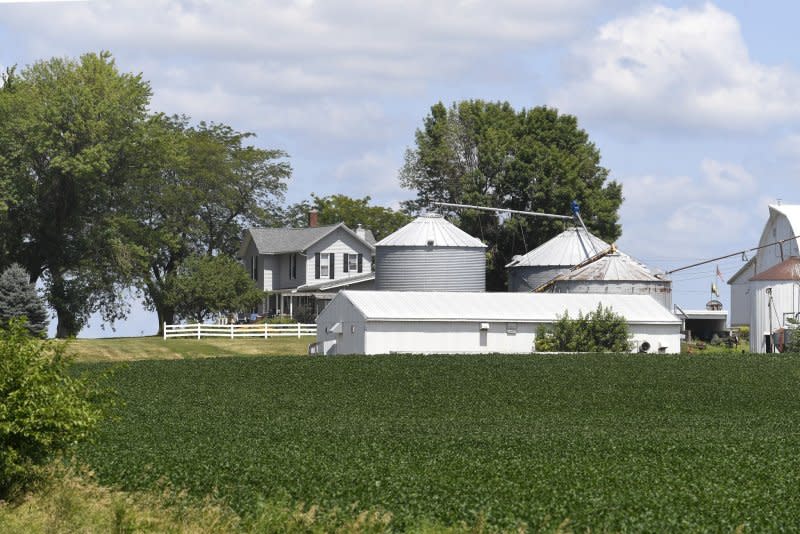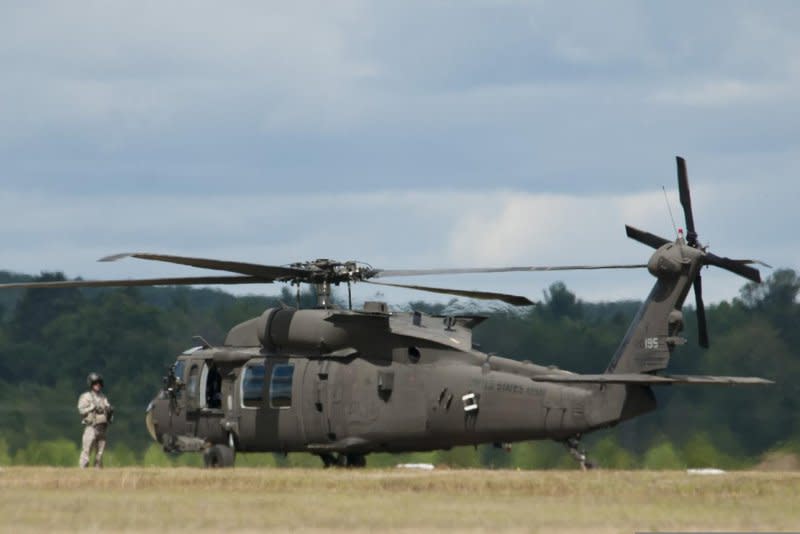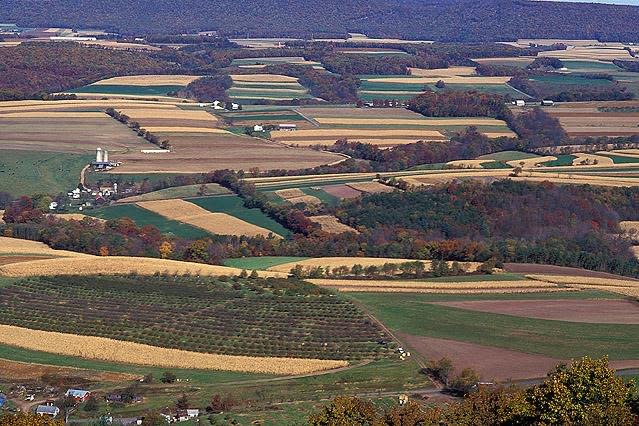Chinese ownership of U.S. farmland, locations raise concerns

Feb. 8 (UPI) -- Foreign investment in the nation's farmland has raised concern among U.S. lawmakers and governmental officials, particularly after reports about Chinese companies buying land near military bases.
For example, a Chinese company bought farmland in 2021 for acorn-milling facility near an Air Force base in Grand Forks, N.D.
Another piece of land in Michigan purchased in 2023 by a Chinese company is situated near the nation's largest National Guard training facility in Grayling. Officials for the Chinese company said the land will be used to build an EV battery plant.
Purchases of farmland near military bases by Chinese-owned entities has prompted a change in how the federal government reviews and OKs or denies U.S. land purchases by foreign investors.
President Joe Biden in May proposed that the federal Committee on Foreign Investment in the United States review any land sales to foreign investors when the property is situated within 100 miles of eight U.S. military bases. The committee soon after adopted Biden's suggested rule change.

The newly protected military bases and their locations are:
Air Force Plant 42 in Palmdale, Calif.
Dyess Air Force Base in Abilene, Texas
Ellsworth Air Force Base in Box Elder, S.D.
Grand Forks Air Force Base in Grand Forks, N.D.
Iowa National Guard Joint Force Headquarters in Des Moines, Iowa
Lackland Air Force Base in San Antonio, Texas
Laughlin air Force Base in Del Rio, Texas
Luke Air Force Base in Glendale, Ariz.
Air Force bases dominate the expanded list of protected military bases because current or future air operations might require restricted airspace for special uses, a Defense Department official told The Hill.

Other military bases already are subject to its oversight related to pending land sales near military bases.
Several states also have enacted laws that would restrict farmland sales to foreign investors and entities. A dozen of them enacted laws in 2023 that restrict foreign investment in agricultural land, according to the National Agricultural Law Center.

In total, about half of U.S. states have laws that restrict foreign ownership of agricultural land, while about 20 have laws that allow foreign land investments. Some states that restrict land sales to foreign investors only regulate agricultural land and not privately owned land, according to the law center.
Despite laws to protect agricultural land in about half of the nation's states and that restrict sales near military bases, information gaps exist regarding the buyers and owners of land.
"I don't know that we know for sure all the foreign land that potentially is owned by Chinese individuals or folks controlled by the Chinese government," U.S. Sen. Jon Tester, D-Wy., told NPR in June.
A Department of Defense report issued Dec. 31 on Chinese military companies doing business in the United States reinforced that concern.
China has 46 military firms plus subsidiaries operating within the United States that are disguised as civilian entities, the report said.
Among them are prominent names, such as the Huawei Investment & Holdings Co. that owns telecommunications giant Huawei Technologies Co. and Semiconductor Manufacturing International Corp., which has seven subsidiaries listed along with the parent corporation.
For farmland purchases, the Agricultural Foreign Investment Disclosure Act of 1978 requires all foreign investors and entities that own U.S. agricultural land to report the names of individuals or entities that own the land, their countries of origin and how the land is used.
The U.S. Department of Agriculture's most recent report related to that report shows 43.4 million acres of U.S. farmland are owned by people and entities from outside the United States.
Foreign-owned acreage is equal to 3.4% of all privately owned agricultural land and about 2% of the nation's total land area, the report said.
The USDA said the 43.4 million acres owned by foreign investors is about 48% forest, 28% cropland, and 21% pasture and other agricultural land. Non-agricultural land accounts for the remaining 3% of land owned by foreign investors.
"Growing foreign ownership of U.S. farmland, particularly by China, poses a direct threat to our food security and national security," U.S. Reps. Glenn Thompson, R-Pa., and James Comer, R-Ky., said in a joint statement Jan. 18.
Thompson chairs the House Committee on Agriculture, while Comer chairs the House Committee on Oversight and Accountability.
Foreign investors from 2012 through 2017 increased their holdings of U.S. agricultural land by 0.6 million acres annually, according to the USDA. Since 2017, those investors increased annual purchases by nearly five times to an average of 2.9 million acres a year.
Global tensions with China challenging the United States as the world's dominant superpower and provoking the U.S. military in the air and on the seas especially are causing increased concern among lawmakers.
China accounts for 349,442 acres -- less than 1% -- of the nation's foreign-owned lands.
The USDA also says 85% of Chinese investments in U.S. lands are situated in five states: Texas,162,167 acres; North Carolina, 44,776 acres; Missouri, 43,071 acres; Utah, 32,447 acres; and Virginia,14,382 acres.
The agency shows five Chinese-owned companies own or control 86% of that land. They are: Brazos Highland Companies owns 102,345 acres; Murphy Brown LLC, doing business as Smithfield Foods, owns 97,975 acres' Murphy Brown of Missouri, doing business as Smithfield Foods, owns 42,716 acres; Harvest Texas LLC owns 29,705 acres; and Walton International Group (USA) Inc. owns 29,437 acres.
None of the Chinese-owned companies is directly related to China's government, according to the USDA report.
What concerns elected officials, though, is that the USDA can't provide accurate and current reports on how much land foreign investors own in the United States or where that land is, according to a Jan. 18 Government Accountability Office report.
The GAO suggested changes to Agricultural Foreign Investment Disclosure Act reporting requirements for foreign-owned lands in the United States to ensure greater transparency and make it more difficult for foreign investors to buy land that might be used to undermine national security.
The GAO report said the current process to do that is confusing and prone to error.
GAO officials suggest the USDA obtain detailed and timely information when foreign investors and entities buy land, clarify instructions for reporting land transactions and improve verification and monitoring methods to validate the information provided.
"This report confirms one of our worst fears: that not only is the USDA unable to answer the question of who owns what land and where, but that there is no plan by the department to internally reverse this dangerous flaw that affects our supply chain and economy," U.S. Rep. Dan Newhouse, R-Wash., said in a release.
"Food security is national security, and we cannot allow foreign adversaries to influence our food supply while we stick our heads in the sand," said Newhouse, a member of the House Select Committee on Strategic Competition with the Chinese Communist Party.
He added that the lack of transparency in land owned by people or entities in China and other nations threatens national security.

